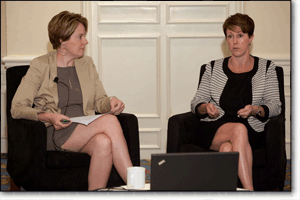- Home
-
News
- Back to parent navigation item
- News
- National Compliance Officer Day 2025
- Accounting & Auditing
- AI
- AML
- Anti-Bribery
- Best Practices
- Boards & Shareholders
- Cryptocurrency and Digital Assets
- Culture
- ESG/Social Responsibility
- Ethics & Culture
- Europe
- Financial Services
- Internal Controls
- Regulatory Enforcement
- Regulatory Policy
- Risk Management
- Sanctions
- Surveys & Benchmarking
- Supply Chain
- Third Party Risk
- Whistleblowers
- Opinion
- Benchmarking
- Certification
- Events
- Research
- Awards
-
CW Connect
- Back to parent navigation item
- CW Connect
- Sign In
- Apply
- Membership
- Contact
THIS IS MEMBERS-ONLY CONTENT
You are not logged in and do not have access to members-only content.
If you are already a registered user or a member, SIGN IN now.
Related articles
-
 Opinion
OpinionEthics as strategic value: When compliance becomes a board-level decision tool
2026-02-05T00:46:00Z By Barbara Badoino CW guest columnist
For many Boards of Directors, compliance reporting feels familiar and reassuring. Dashboards are green. Policies are updated. Training is complete. Incidents are investigated and closed. On paper, the system works.
-
 Opinion
OpinionWhy “just do the work” fails in regulated organizations
2026-01-28T12:55:00Z By Nathan Eckel CW guest columnist
Most organizational failures are not failures of effort, discipline, or follow-through. They are interpretation failures misdiagnosed as execution problems.
-
 Basic Page
Basic PageNestlé CEO dismissed after code of conduct breach
2025-09-05T21:03:00Z By Aly McDevitt
Nestlé dismissed its CEO over an undisclosed relationship with a subordinate, a clear breach of the company’s code of business conduct. The dismissal underscores that no one is exempt from compliance obligations, even top leadership.
- Terms and Conditions
- Privacy Policy
- Do Not Sell My Info
- © 2025 Compliance Week
Site powered by Webvision Cloud







